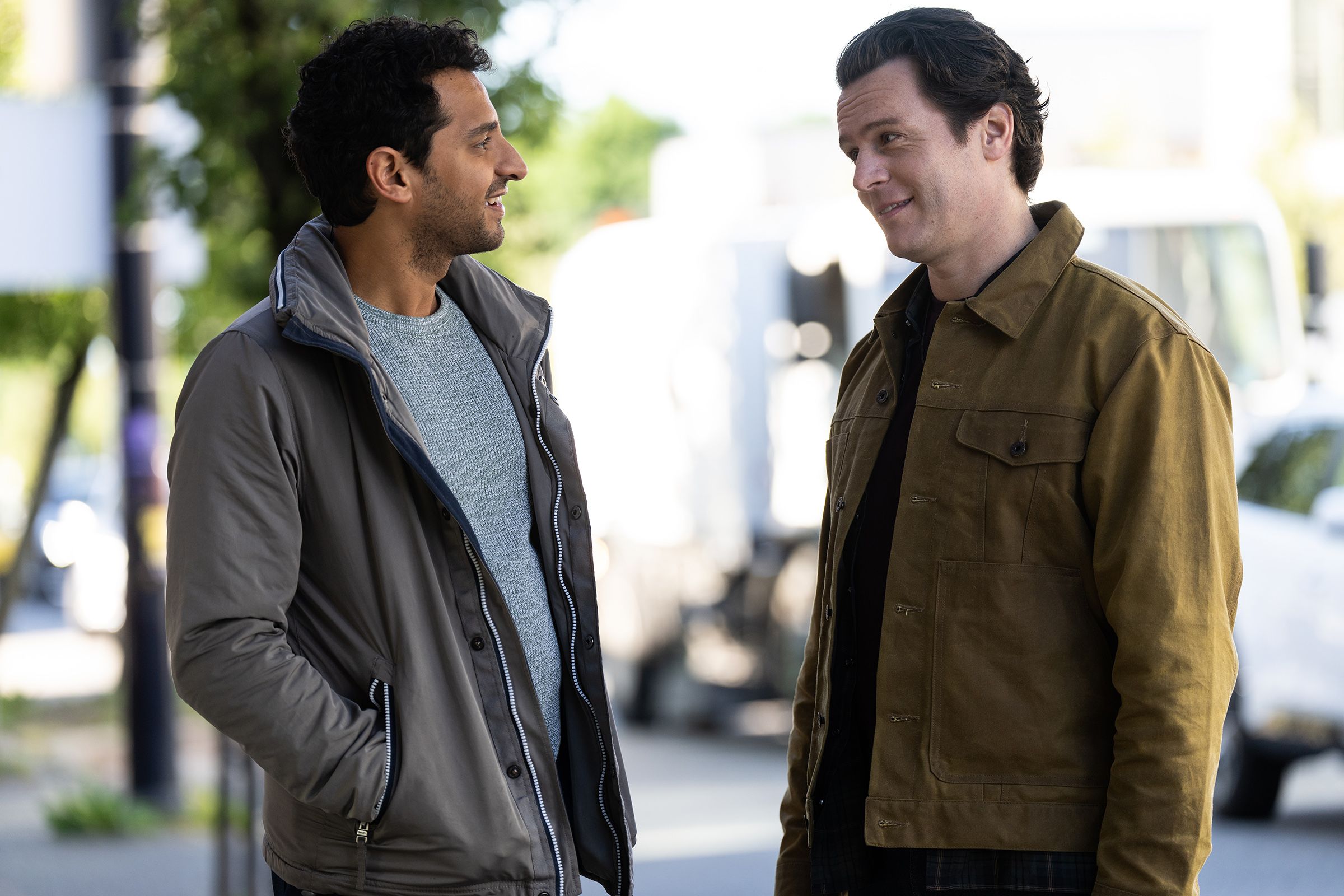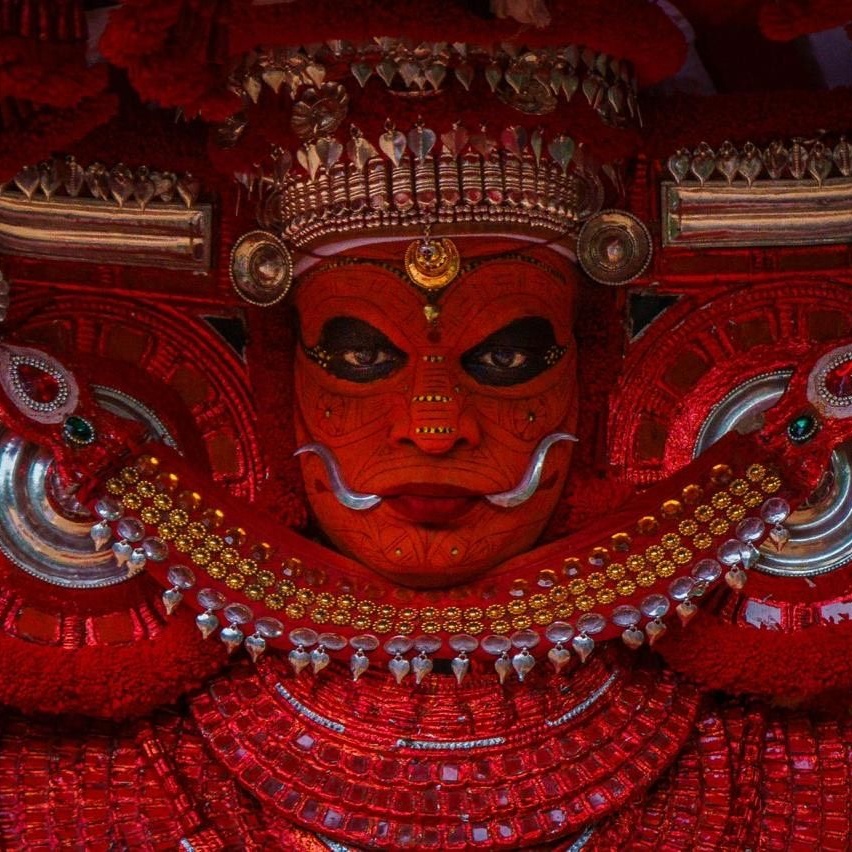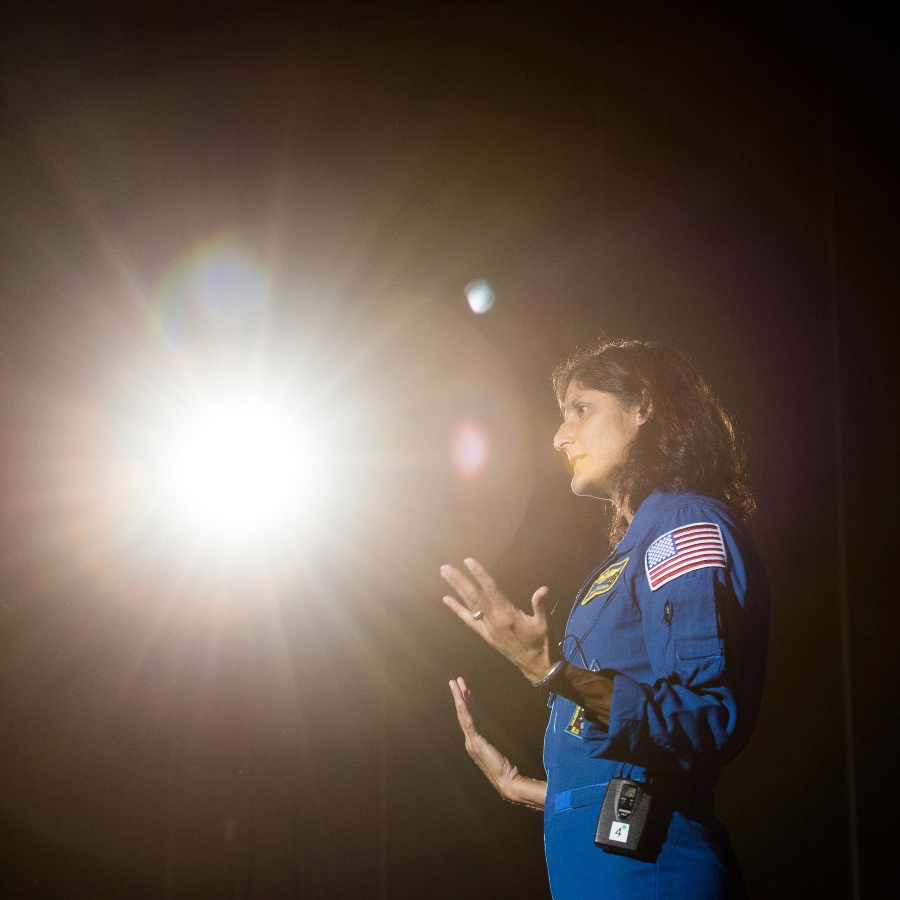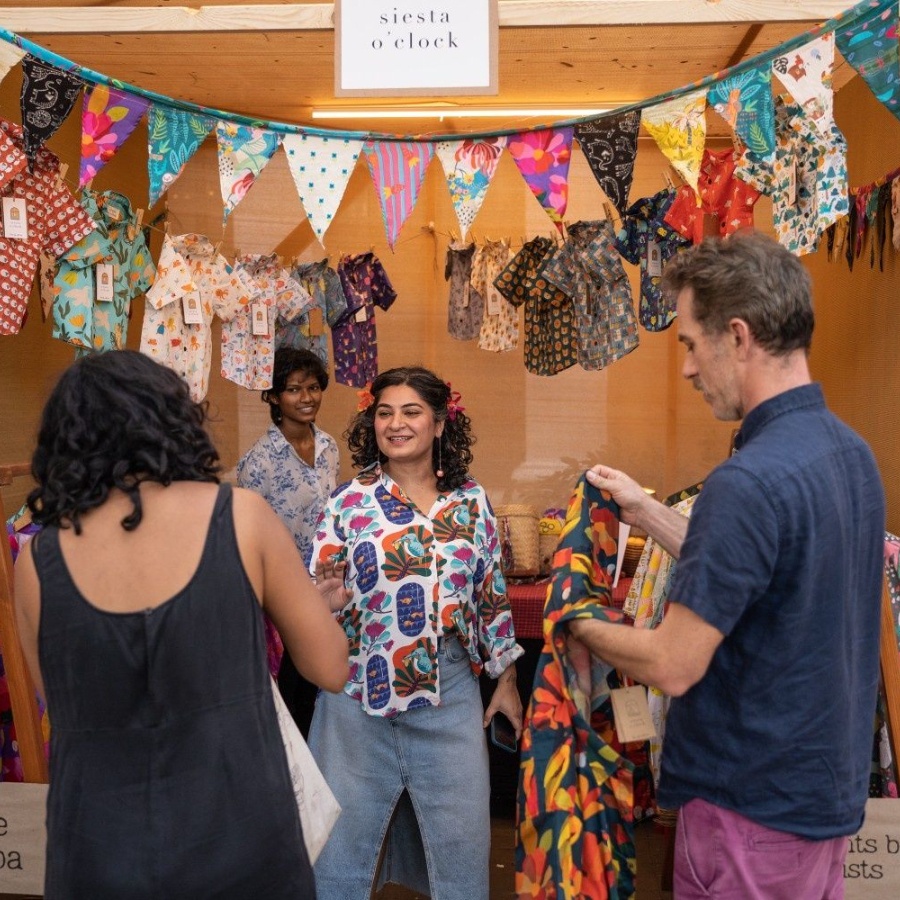It is 10 am in the West Coast, and Roshan Sethi and Karan Soni have a long day ahead of them. Yet, the director and actor, who are also real-life romantic partners and in the final leg of the press tour for their upcoming film, A Nice Indian Boy, barely show any signs of exhaustion. Eyes sparkling and smiles bursting at the seams, they turn dead-pan serious when I ask: What makes for a nice Indian boy? Is he the obedient son who calls his mother every night, excels in academics, is heterosexual, and dutifully follows the unspoken rules of tradition? Or is he someone who can belt out all the lyrics to ‘Tujhe Dekha Toh Yeh Jaana Sanam’ while simultaneously starring in a film that upends conventional ideas of Indian family dynamics and love?
The Los Angeles-based duo argue that the definition is a little more layered. “I always imagine a nice Indian boy as Shah Rukh Khan, before he falls in love with Kajol in Kabhi Khushi Kabhie Gham,” muses Soni. “Just the perfect son.” Sethi, on the other hand, bursts out laughing. “A nice Indian boy is sweet to his mom, follows the rules, doesn’t create a ruckus. I don’t think I am one.” No matter what they peddle, Sethi and Soni are the very definition of nice Indian boys, bringing to life a tender, funny, and poignant film that redefines what it means to belong (and one that left me a slobbering, weeping mess the previous night, but more on that later).
Thirty-seven-year-old Sethi’s journey to filmmaking has been anything but traditional. A Harvard-trained doctor, like all nice Indian boys, he initially thought storytelling was a side passion. That changed when he was brought on as a consultant for a television show about young doctors. “The premise was basically ‘what if Harvard med students were hot?’” he jokes. Though the show never made it past its pilot, it opened a door he hadn’t previously considered. He began slipping his own scripts to showrunners and, before long, found himself working as a television writer. Eventually, he co-created The Resident, a medical drama that ran for six seasons. Still, he grew frustrated by the slow-moving machinery of Hollywood, where promising scripts often languish in development limbo. Taking matters into his own hands, he directed his first feature, 7 Days, in 2020. The film starred Soni, who also co-wrote the film.
For 35-year-old Soni, the road to Hollywood was equally unexpected. Born and raised in Delhi, he had little interest in acting until he realised it could be a way to avoid social obscurity. “I was pretty unpopular and bullied, but then I got cast in the school play. Suddenly, all my bullies’ girlfriends were in the audience, and they thought I was cool,” he recalls. The social benefits quickly evolved into a genuine passion, and when he moved to Los Angeles for college, the dream of an acting career became more tangible. “A friend booked a McDonald’s commercial and made $50,000. In 2007, that was all the money I thought I would need to live my life.” With no connections in the industry, he took the old-school route: printing out headshots and mailing them to every agent he could find. Eventually, one signed him—mistakenly believing he had played a role in Slumdog Millionaire. “I didn’t correct him,” Soni admits with a grin.










